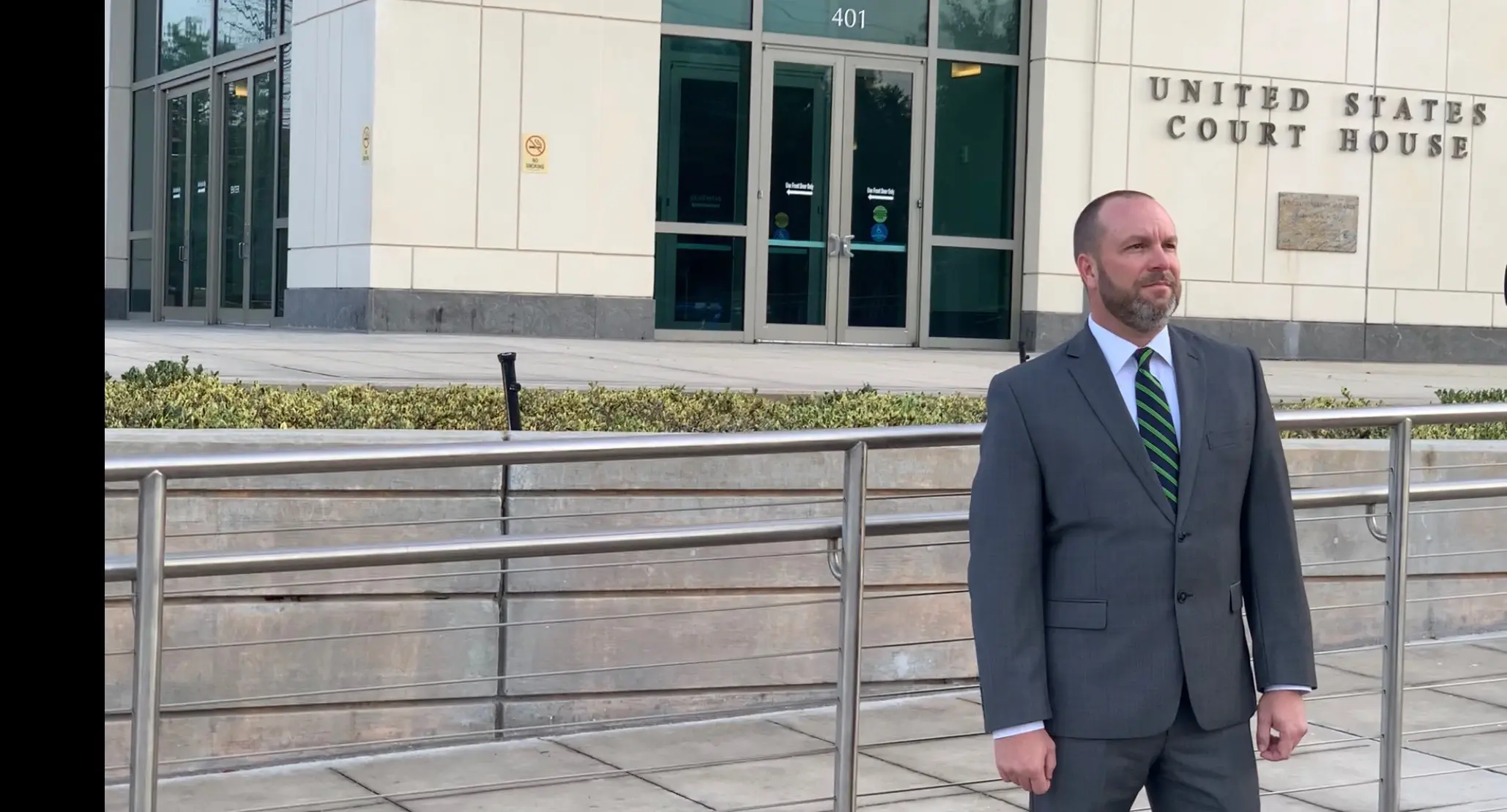

Once someone is arrested and charged in federal court, one of the first priorities is getting released from custody. Being detained impacts family, finances and the ability to prepare a defense to the allegations. Having an experienced federal criminal defense attorney guide you during this time is absolutely critical.
When the U.S. Attorney’s Office moves for a detention hearing, the prosecutor is asking the judge to hold you in jail – without bail – while your case is pending. This makes a detention hearing an incredibly important stage of the case because cases can take months to resolve.
Detention hearings can be insightful for the defense because information can be learned at the hearing that would not otherwise be available until much later in the case. This may also be your attorney’s only opportunity to cross-examine government witnesses prior to trial.
Why is a Federal Detention Hearing Scheduled?
A detention hearing may also be held at the court’s own election if the judge believes that you are:
- a serious risk of flight; or
- pose a danger to the community
A detention hearing may be held at the prosecutor’s request, if your case involves:
- a crime of violence;
- an offense with a maximum sentence of life imprisonment or death;
- an offense for which the maximum term of imprisonment is 10 or more years as prescribed by the Controlled Substances Act; or
- any felony if the person has been convicted of two or more offenses described in 18 U.S.C. § 3142, paragraphs (a) through (c), or comparable state offenses.
When Will the Federal Detention Hearing Take Place?
Detention hearings are often held at the initial appearance on the day that someone is arrested. However, the Federal Rules of Criminal Procedure allow for the prosecutor to request a three-day delay, and the defense can ask for up to five days for the hearing. If the hearing is delayed, you will remain in custody until the hearing takes place.
Because a federal detention hearing is held so soon after the arrest, having an experienced federal criminal defense attorney represent you is essential.
What Happens at a Federal Detention Hearing?
Detention hearings are much more informal than a trial. In fact, the Federal Rules of Evidence do not apply at detention hearings. The government does not need to produce its evidence or witnesses at the hearing and can even “proffer” evidence. However, it is the government’s burden to establish that no conditions of release would reasonably assure the safety of the community or assure your appearance for future hearings.
Your defense attorney can cross-examine witnesses that the government calls and request reports that witnesses authored. Your attorney can present defense witnesses and evidence as well. Oftentimes, the most critical part is your attorney suggesting certain conditions of release to the court.
Every case is different, and only an experienced federal criminal defense attorney can thoroughly investigate your case and present coherent arguments for your release. Given the time constraints involved, it is imperative that you retain an experienced federal criminal defense attorney – and fast.
What Are the Possible Results of a Federal Detention Hearing?
At the conclusion of the detention hearing, the magistrate judge will decide whether you will be detained or release. If you are released, the judge will also set the conditions of your release. You could be released on your own recognizance, released on bail, released with conditions, or a combination of the three.
- Best case scenario: A defendant is released on personal recognizance, or upon your execution of an “unsecured appearance bond.”
- Worst case scenario: If the judge determines that no conditions of release will reasonably assure your appearance at all court proceedings, or that your release will pose a danger to the community, you can be held without bail during the pendency of your case.
What Factors Are Taken into Consideration Regarding Eligibility for Release?
Every case and defendant is different. As a result, a number of considerations go into the federal magistrate judge’s decision to detain or release a defendant including:
- the nature and circumstances of the offense;
- the weight of the evidence against you;
- history and characteristics of the defendant (This can include your physical and mental condition, family ties, employment, financial resources, length of time in the community, community ties, past conduct relating to drug or alcohol abuse, criminal history, previous failures to appear at court, or whether you were on probation or any other release during the offense.)
- the nature and seriousness of the danger to any person or to the community that would be posed by your release; and/or
- immigration status.
What Types of Release Conditions Can be Set?
If the judge decides to release you, there are a number of conditions that they can set, including the requirement(s) that you:
- remain in the custody of a designated person, who agrees to assume supervision over you (typically referred to as a “third party custodian”); electronic monitoring (“house arrest”);
- maintain or seek employment;
- maintain or begin an educational program;
- travel restrictions or surrendering of your passport;
- comply with a curfew;
- refrain from possessing a firearms or weapons;
- refrain from the use of alcohol, drugs, or other controlled substances;
- undergo medical, psychological, or psychiatric treatment;
- execute an agreement to forfeit property or money if you fail to appear in court as required; and/or
- avoid all contact with an alleged victim and any potential witnesses.
Can I Appeal the Magistrate Judge’s Decision?
You have the right to appeal the magistrate judge’s decision. If you appeal the detention hearing order, the District Court must review the matter and make an independent conclusion. However, it is much better to secure your release at the initial detention hearing.
Hire an Experienced Federal Criminal Defense Lawyer
For your best chance to win your detention hearing, you need a highly skilled and experienced Federal Criminal Defense Attorney as your attorney. Haas Law has handled hundreds of detention hearings. Contact Haas Law today for a free initial phone consultation at (407) 755-7675.
